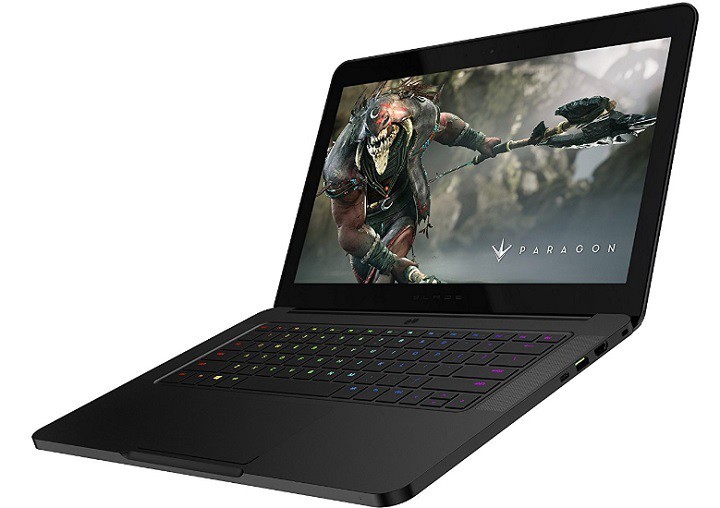

- #BEST VR READY PCS UPDATE#
- #BEST VR READY PCS UPGRADE#
- #BEST VR READY PCS WINDOWS 10#
- #BEST VR READY PCS SOFTWARE#
- #BEST VR READY PCS PLUS#
If you want a computer for advanced gaming, VR, and that will last for the next several years without being outdated, this is a good option.

If you’re just looking for a computer that will run your new Rift S, this is more than you need. Since working with the Rift S is the baseline we started from, we were looking for computers that offered more. It’s our Top Pick based on its quality as a gaming computer rather than how it runs specifically with Rift S. It’s much more than you need simply to run a Rift S. This is one of the most advanced computers you can get pre-built right now.
#BEST VR READY PCS WINDOWS 10#
Microsoft Windows 10 Home (64-bit) 4.If you’re looking for something a little more than a basic gaming computer to go with your Oculus Rift, the Aurora R9 may be the way to go. Microsoft Windows 10 Home (64-bit) OC 4.7GHz Intel Core i7-6700K 8GB DDR4 SDRAM 2,133MHz 4GB Nvidia GeForce GTX 970 250GB SSD + 1TB 7,200rpm HDD Microsoft Windows 10 Home (64-bit) 2.7GHz Intel Core i5-6400 8GB DDR4 SDRAM 2,133MHz 4GB Nvidia GeForce GTX 970 1TB 7,200rpm HDD Microsoft Windows 10 Home (64-bit) 4GHz Intel Core i7-6700K 16GB DDR4 SDRAM 2,133MHz 4GB Nvidia GeForce GTX 980 256GB SSD + 2TB 7,200rpm HDD Microsoft Windows 10 Home (64-bit) 4GHz Intel Core i7-6700K 16GB DDR4 SDRAM 2,400MHz 6GB Nvidia GeForce GTX 980Ti 500GB SSD + 1TB 7,200rpm HDD
#BEST VR READY PCS UPDATE#
New 1080 series GPUs from Nvidia are just starting to trickle out, and we'll update our results once we test these new graphics cards.

#BEST VR READY PCS PLUS#
Spending more allows for upgrades to the even faster GeForce 980ti graphics card, more RAM and additional solid state storage, plus extras such as cool designs, ergonomic keyboards, overclocked parts and personalized service and support. Even the lower-end machines tested here should do that for the first generation of VR games and apps, but you may want to invest in more than the minimum required specs to be assured of a smooth experience in the more intensive VR games coming in the future.īased on extensive hands-on testing in the CNET Labs, the sweet spot for price and performance is right around $2,000, which will cover a current-gen Core i7-6700K processor and a single Nvidia GeForce GTX 980 graphics card, plus a decent amount of hard-drive space for large game files. That also means even a new gaming laptop that cost thousands won't work, unless it's one of a very small handful of laptops that squeezes in a stripped-down version of the desktop Nvidia 980 graphics card.įor both the Oculus and Vive headsets, the system requirements are built around maintaining a steady 90 frames of animation per second, per eye. Required system specs include a recent Intel Core i5 or Core i7 CPU, and a desktop graphics card - at least an Nvidia GeForce GTX 970 or AMD R9 290.
#BEST VR READY PCS UPGRADE#
Unless you're going for the minimum required spec, it's an upgrade worth considering (and we'll be testing some 1080-based PCs in the near future).įor anyone interested in virtual reality, the takeaways above are important to keep in mind, as the PC you have today probably won't run either the Oculus Rift or HTC Vive, unless it's a fairly recent tricked-out gaming desktop. Should you buy now, or wait for the next generation of components? There's always something new around the corner, but this is a good moment to take stock, as Nvidia's new GeForce 1080 graphics cards are, or will soon be, available as an option in most of the systems listed below.If you're an upgrader, make sure the desktop you choose has easy tool-free access to the interior. Do you want a huge, floor-hogging tower? Then be prepared to make space for it. Do you want a PC that's as small as possible? If so, there are a couple of smaller chassis options, but those require trade-offs in terms of expansion and available configuration options. There are many design and feature options to keep in mind.
#BEST VR READY PCS SOFTWARE#
Virtual reality software needs to run at a steady 90 frames per second per eye, but even the least-expensive desktops tested here worked well with every VR app we tried. Unlike many PC gaming experiences, just hitting the minimum required specs will actually give you a good experience, at least with the first couple of generations of VR games and apps.The Oculus Rift and HTC Vive headsets cost $599 and $799, respectively, and the PCs required to run them start at $999 and go up from there (all prices discussed here are in US dollars). Now that we've tested nine new PCs (eight desktops and one laptop) specifically built for use with virtual reality headsets, there are a few key takeaways: Watch this: Picking the right gaming PC for virtual reality


 0 kommentar(er)
0 kommentar(er)
